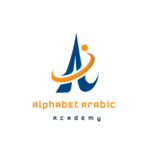Are you looking to learn Arabic online for free?
YouTube offers an incredible variety of resources that make it easy to explore this beautiful language. From channels dedicated to Arabic grammar to engaging vocabulary lessons, you can find high-quality content to start your language-learning journey. In this article, we will highlight some of the best ways to learn Arabic on YouTube, focusing on different dialects, and we’ll share how you can supplement your learning with affordable and professional courses through Alphabet Arabic Academy. contact us

Benefits of Learning Arabic on YouTube
YouTube is a treasure trove of opportunities for Arabic learners. With thousands of videos covering Modern Standard Arabic, dialects like Kuwaiti and Iraqi, and grammar lessons, there’s something for everyone. Plus, it’s free! Here are a few reasons why learning Arabic on YouTube is so popular:
- Flexible learning allows you to view videos at any time and in any place.
- Diverse Content: Channels for beginners, kids, and even professional learners.
- Interactive Resources: Many channels provide quizzes, downloadable worksheets, and community engagement.
- Multilingual Options: Lessons often include subtitles in English, Spanish, Hindi, and more.
Top YouTube Channels for Learning Arabic

1. Learn Arabic for Beginners
These channels are perfect for starting with basic Arabic grammar and vocabulary. They use simple words and phrases to build your foundation.
- Zakaria: A fantastic resource for kids, offering easy and fun lessons.
- ArabicPod: Focused on vocabulary and conversation skills, ideal for beginners and intermediate learners.
2. Advanced Arabic Lessons
For those aiming to refine their skills, these channels provide in-depth lessons on Modern Standard Arabic and dialects like Iraqi and Jordanian Arabic.
- Adam’s Channel: High-quality content on Arabic grammar and vocabulary for advanced learners.
- Professional Arabic Player: A channel covering advanced lessons and cultural insights.
3. Dialects and Specialized Content
Want to perfect a particular accent? Check these out:
- Learn Kuwaiti Arabic Online: Focused on everyday conversations in Kuwaiti Arabic.
- Iraqi Arabic Videos: Free lessons that cover Iraqi vocabulary and grammar.
- Jordanian Dialect Series: Perfect for those wanting to dive into Jordanian Arabic.
Regional Online Learning Options
If you’re based in specific regions, you can pair YouTube learning with local options:
Learn Arabic Online in Kerala
Kerala has a growing community of Arabic learners. Pair YouTube videos with professional courses from Alphabet Arabic Academy. Adaptable timetables simplify learning at your preferred speed.
Learn Arabic Online in Pakistan
For learners in Pakistan, YouTube offers great content in Urdu to simplify learning. Combine this with affordable lessons at our academy for a more structured approach.
Study Arabic through online courses conducted in the Urdu language.
Find YouTube channels that explain Arabic grammar and vocabulary in Urdu, making it accessible for beginners.
Learn Kuwaiti Arabic Online
Explore YouTube videos focused on Kuwaiti Arabic, then enhance your learning with private one-on-one lessons through our academy.
Learn Iraqi Arabic Online Free
Free YouTube resources are a great starting point. Combine these with interactive lessons at our academy for a comprehensive experience.
Learn Jordanian Arabic Online
Dive into the Jordanian dialect with YouTube’s free lessons and professional courses that we offer at a low cost.
Success Tips in Learning Arabic

- Start with Vocabulary: Watch videos that teach essential words and phrases.
- Practice Grammar: Look for content that explains grammar rules in simple terms.
- Play Interactive Games: Many YouTube channels offer educational games to make learning fun.
- Engage with the Community: Participate in comments and discussions to improve your skills.
- Supplement Learning with Affordable Courses: At Alphabet Arabic Academy, we provide structured lessons for all skill levels.
Why Choose Alphabet Arabic Academy?
While YouTube is a fantastic resource, learning Arabic requires guidance and consistency. Alphabet Arabic Academy offers:
- Affordable Plans: Courses start at just $40 per month.
- Professional Instruction: Qualified teachers with years of experience.
- Flexible Scheduling: Study at a convenient time for you.
- Interactive Lessons: One-on-one sessions tailored to your needs.
Check out our social media channels for more tips, updates, and opportunities to learn Arabic with ease.
Conclusion
YouTube is an excellent platform to start learning Arabic, offering endless opportunities to watch, play, and explore language lessons for free. Combine these resources with professional courses at Alphabet Arabic Academy to fast-track your progress. Start your journey today and open doors to new cultural experiences, professional opportunities, and more.
also read
https://alphabetarabicacademy.com/learn-arabic-online-course/ https://alphabetarabicacademy.com/boost-skills-learn-arabic-online-in-weeks-now/ https://alphabetarabicacademy.com/learn-arabic-online-classes-start-now/


